#French revolution related
Explore tagged Tumblr posts
Text

REVIEW
The Gargoyles of Notre Dame by Greg Walters
Action-packed fantasy with magical elements and gargoyles that is set in Paris just before the French Revolution. I had the feeling it would make a good book for perhaps youth or young adults. The plot, pacing, setting and writing were excellent.
The two main characters are 15-year-old Catia, daughter of a noble, and 22-year-old Henri, a stonemason apprentice. The book is told from their viewpoints and flips between the two unless they are together. Nyron, the gargoyle that bonds and binds with Henri, also plays a big part in the story as he communicates with Henri in rhyme. The bond between Nyron and Henri is strong and they support one another and at times save one another’s lives.
The times are tense and much like what I imagine the time prior to the French Revolution might have been. Both main characters suffered losses, but they also grew and learned as the story progressed. I wonder if there will be a sequel.
I can see this book being made into a movie and now wonder who might be cast in the roles of Henri and Catia.
Thank you to NetGalley and Book Whisperer for the ARC – This is my honest review.
4-5 Stars
BLURB
History meets Fantasy in Revolutionary France! Paris, 1789. The soaring spires of Notre Dame conceal more than prayer and piety. Within the cathedral lies the secret of the gargoyles, mystical creatures bound by ancient magic to the aristocracy. For centuries, these stone sentinels have ensured the power of the nobility and kept the oppressed powerless. When Henri, a 22-year-old stonemason apprentice, accidentally forges a sacred bond with one of these creatures, he shatters a tradition meant to protect only the upper class. Betrayed by the gargoyles and hunted as a traitor, Henri flees into a city teetering on the edge of revolution. As word of his forbidden connection spreads, hope ignites among the oppressed. To the people, Henri becomes more than a fugitive. He is a symbol, proof that the chains of oppression can be broken. With cries of “Liberty! Equality! Fraternity!” rising in the streets, Henri faces an impossible choice. Will he hide from the chaos or risk everything to lead a rebellion that could reshape France forever? Perfect for fans of The Gilded Wolves and The Night Circus, The Gargoyles of Notre Dame is an exhilarating tale of magic, rebellion, and the courage to defy destiny.
0 notes
Text
🪐. | p2 .


— p1 .
#i just thought of putting lyrics that fit them#this isn't related with the frev alnst au in a way this is something else that i made for fun#< (also i kinda want to continue this chain in a way. of course i said that in the last post so yeah)#also while i was making this i thought of replacing danton's (blink gone) with another song but. yknow what im keeping it#< reserving another song for him on the next post... probably 👀..#camille always gave off ivan for me so im giving him ivan's lyrics from cure#yeahhhh#maybe thats all i could say in tags i guess#and hello you guys from main again 🗣‼️#frev#french revolution#georges danton#camille desmoulins#frevblr#frev art#frev community#frev shitposting#not tagging this with the tag (2)#antoine with a triple e's art or sumn
84 notes
·
View notes
Text
lol I care way too much
I was getting upset/worked up discussing that This Is History podcast with my twin ahaha
I realised upon trying to explain why I dislike how they're describing Robespierre is vm it's hurting on a personal level 😅
As someone who's Ace, I dislike this link between 'Asexual' and 'Cold/chilly'. I don't know if Robespierre was Ace, but I have *always* been painfully aware of how his notable lack of romantic relationships with women gets used as an attempt to psycho-analyse him or used as a sort of proof of his bad character.
I'm painfully aware of it because I've been in that situation myself.
As someone who's autistic, and who's read extensively about Robespierre- I'm again, PAINFULLY aware of how people disconnect between the very emotional and empathic things Robespierre says/writes vs how his *outward behaviours* were *perceived*.
We can't say for sure Robespierre was autistic ofc. But his is an incredibly relatable experience, of people deciding someone is cold, unemotional, difficult, hard to understand- all because of how their unusual ('billious' LOL) behaviour is perceived by others and not esp looking at what they say or do.
I experience that all the time 😅 Gah. It's so personal to me, it shouldnt be, but it rly is.
#If youve read A Kind of Spark#I'm like the autistic girl in that whos obsessed with making the town redeem the people put on witch trials cos she majorly relates#to the witches that were put on trial#thats me but the witches are Robespierre lol#frev#french revolution
59 notes
·
View notes
Text
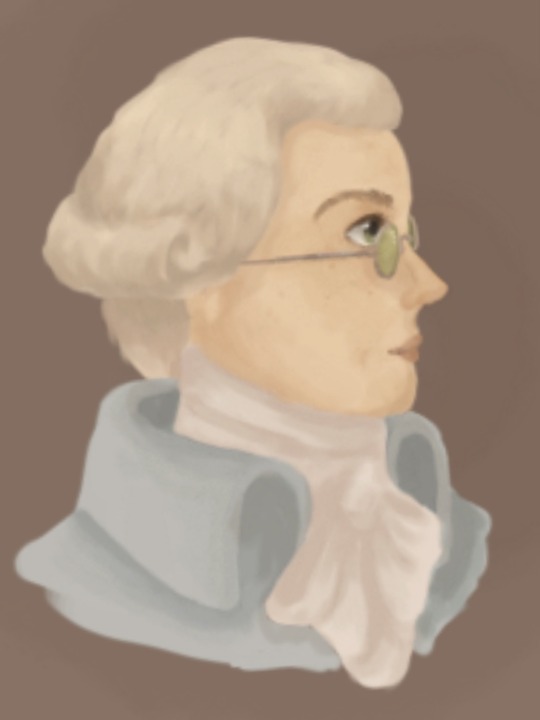
happy birthday maxime 🎉
#frev#robespierre#my art#french revolution#the funny thing is I’ve had European history related exams for the past few years on his birthday#just did my final for French Revolution class
22 notes
·
View notes
Text
i miss those heady days when i was writing the anglo-saxon au and looking shit up and then not using the information in the fic but hey look i'd Researched, and the thrill of having to explain to the imaginary reader that 'this thing is SCANDALOUS in the historical context that i haven't really provided for you', and all that sort of stuff, so i would quite like to write another Historical MCU AU but i don't know what it'd be and also i kind of fear people getting somehow annoyed by it.
#fic related#i can't do regency (not keen on the frocks) so even though it's a Popular Romance Genre that one's ruled out :(#i feel like i could manage things set between the anglo-saxon era (wimples!) and the french revolution (panniers!)#i own several books about tudor-era clothing so if you have any suggestions that'd utilise those resources let me know#(you may be picking up on a bit of a clothing focus here)#aside: if anyone thinks i just forgot to give AU!Sylvie knickers in the adultery AU - NO I DID NOT I WAS BEING ACCURATE!!!#(that's been nagging at me so i felt the need to capslock)#another thing putting me off is that i know i'm pretty hypocritical about AUs of this sort :S#but that's kind of the thing - if i'm losing the canon context that drew me in i'll need a new one that i already care about somehow#but (x2) i'm not stopping other people writing the oddly specific au scenarios they're into am i? so how's it bad if i do it myself?
12 notes
·
View notes
Text
The original Beauty and the Beast story has a rough ending.
I mean the OG French book. It turns out they're all decedents of fairies and at first they're mad that Belle is not royal. Then it's revealed it's okay because she was The Beast's long lost cousin the whole time.
Well done, France. I'm glad The Beast does not survive the revolution.
#beauty and the beast#beast#the beast#musicals#disney films#original#french#the french revolution#belle#fairies#what the hell? Why are the related?!
3 notes
·
View notes
Text

#french republican calendar#french revolution#relatable but in a shield my from this humid heat way#the sun is my enemy
9 notes
·
View notes
Text
— 16 GERMINAL , AN II .

‐




( —except im 2 weeks late because i kept procrastinating and drawing other things but im posting this anyways cuz i liked how it turned out, anyways)
:] .
#tw disturbing imagery#tw bright colors#been itching to finish this up ever since i made it#so far from all of the drafts that ive did related to his (or their) death date i think this is my best one yet#there was supposed to be something around the last image but i got too lazy but that fine shjahaj#yeah#anyways hi you guys again from main#(there will be something after this. i swear—)#frev#french revolution#french history#frevblr#frev community#frev art#camille desmoulins#antoine with a triple e's art or sumn
47 notes
·
View notes
Text
me fr

0 notes
Text
Gonna spend the evening planning tours around Paris 🥰
#can't wait#I've already searched for tours of sights related to the French Revolution#and decided which of the museums are a must#my heart started beating harder#I'm literally so excited and happy#I don't even care about the bedbug problem
0 notes
Text
"you will seal the cause of the people with your blood"
... and he did <3
I wish people still used this language. Perhaps it sounded adequate then, but try saying something like that today. Enemies will call you crazy, hysterical or pathetic. (I know how they looked at me when I tried it.) No one (except at least part of the frev community) will appreciate this style of speaking anymore. That's why I NEED to write fiction about them. There I can get carried away without consequences. :-)
Augustin Robespierre being his brother’s number 1 fan compilation
…I tremble, my friend, when I think of the dangers that surround you. I implore you, give us your news, report to the public your motion and the scandalous scene you suffered at the hands of an enemy of the people; your virtues, your patriotism must triumph. But you have to convince the ignorant for success to be certain. Farewell, I embrace you with tears in my eyes. Augustin to Maximilien in an undated letter, 1790
…Our simple villagers are horribly gullible; in vain do they know what you have done for them. They forget everything to feast on the misfortune of being crushed by taxes because of you. Augustin to Maximilien in an undated letter, middle of June 1790
I am angry, dear brother, that you are so weak when it comes to your interests. Why hesitate to publish the response to Beaumez? Why consult again, when Charles Lameth has signed and approved this answer? This is an insult you are doing to your greatest friend. So I alert you that I will publish this answer tomorrow. Augustin to Maximilien, June 6 1790
…Your motion for the marriage of priests makes you get regarded as impious by all our great Artesian philosophers. It is well within my principles, but few people are at the same level! You would lose the esteem of the peasants if you renewed this motion. This weapon is used to harm you; people only talk about your irreligion, etc. Perhaps it would be a good idea to stop supporting it. I don't even believe that the National Assembly is mature enough to adopt it. Tell me if I will please you by going to Paris. Augustin to Maximilien, undated 1790
…I cannot hide my fears from you, dear brother, you will seal the cause of the people with your blood, perhaps these people will even be unfortunate enough to strike you, but I swear to avenge your death and to deserve it like you. You will be surprised to learn how far the villainy of your enemies extends. They went to the houses of the people I saw, telling them that they were dishonoring themselves by welcoming me into their homes. I confess to you that this monstrous behavior made my blood boil, that it was prudent for these villains not to appear before me. […] I would like to go to Paris for July 14; I have not yet had a single patriotic enjoyment in Arras. I have to compensate myself. Give me, I beg you, the means to go there, it will be enough to please you. Augustin to Maximilien, undated June 1790
Patriot Dupleix [sic], I learned indirectly that my brother is indisposed; I am worried; let me know about his situation as soon as possible. Send me also the cartridge that I asked my brother's friend to look for in his papers. Tell my brother that my sister is convalescing, and that I will send back Mme Witty's book in a few days. Don't waste a moment, send answers right away. My worry is at its peak. Nothing prevents me from flying to Paris. Also send me some copies of the speech on the war that your friend gave and the observations of Pethion [sic] and Robespierre. I embrace you and your family. Augustin to Maurice Duplay, March 19 1792
It’s surely not curiosity that draws in such a big number of members today, it’s the intimate sentiment of dangers against liberty that assemble them here. I am somewhat ashamed to be speaking before you, because the brother of Robespierre should be calumniated, and he is not. […] Citizens, I had a big fear, it seemed to me like assassins were coming to stab my brother. I heard men say that he would perish by their hands. Another one, whom I asked if he wanted to be the executioner of my brother, responded: ”He has been the executioner of a lot of others.” After this, it is possible to believe innocence will never be victorious! […] I don’t want to leave this rostrum before making an observation on Marat: Marat can’t be guilty, because he is persecuted by the same enemies that persecute Robespierre. Augustin at the jacobins, October 29 1792
…I have just been appointed commissary to the army of Italy, the mission is difficult; I accepted it for the good of my country, I am convinced that I will serve it usefully if only by destroying the slanders with which my name has been blackened. Augustin to Antoine Buissart, July 20 1793
From this moment (around June 10 1794) Robespierre and his friends acted with hostility against us, and especially against me (Barère). One day they even sent Robespierre the younger to me, whom they had recalled from the Basses Alpes. This lunatic entered the committee under pretext of giving an account of his mission to Nice; but instead of fulfilling this duty, he addressed me in a furious tone ”You have maltreated my brother. We missed you on the 31st of May 1793, we shall not miss you on the 31st of May 1794.” He left still threatening us. Memoirs of Barère (1896) volume 2, page 169.
[Robespierre the younger] complains that the lowest flatteries are used to create division between patriots: they went so far as to tell him that he was better than his brother: “But in vain,” he cries, ”would anyone want to separate me from him: as long as he is the proclaimer of morality and the terror of scoundrels, I aspire to no other glory than to share the same tomb as him!” Augustin at the jacobins on July 11 1794, recorded in number 32 (July 18) of Mercure français.
Robespierre the younger: I am as guilty as my brother: I share his virtues; I want to share his fate. I demand an act of accusation against me also. Augustin at the Convention on July 26 1794, as reported in number 311 (July 29) of Le Moniteur Universel
…Proceeding to learning of the causes of the accident, the patient told us his name was [Augustin] Robespierre; that he voluntarily threw himself from one of the windows of Hôtel de Ville, to escape from the hands of the conspirators, because, having been put under a decree of accusation, he believed his death inevitable; that he never stopped doing his duty well at the Convention, like his brother; that no one can reproach him for anything; that he regards Panis as a conspirator, because he once came over to him and declared that Collot d’Herbois does not desire the good of his country in order to deceive him; Carnot appears to him to be one of the conspirators, who wants to surrender his country... Medical report on Augustin, written on July 28 1794, two o’clock in the morning, at the civil committee of the city hall section
#frev#augustin robespierre#maximilien robespierre#french revolution#robespierre#I wish I could have the same relation with my brother
96 notes
·
View notes
Text
recommended resources on Lebanese resistance and its context
this has been in my drafts for a long time bc I wanted to find more audio resources but in light of recent events I'm posting as is, and will add more later. pdfs for texts without links can be found on libgen ⭐ = start with these 📺 = video resource 🎧 = audio resource Hizballah ⭐ Lara Deeb, "Hizballah and Its Civilian Constituencies," in The War on Lebanon: A Reader, eds. Nubar Hovsepian and Rashid Khalidi (2007)
⭐🎧 Electronic Intifada Podcast with Rania Khalek, "Why Hizballah would deal Israel a deadly blow" (2024)
⭐🎧 Electronic Intifada Podcast with Amal Saad, "How Hizballah Aims to Deter Israel" (2024)
📺 Rania Khalek, Interview with Hezbollah's Second-in-Command Sheikh Naim Qassem (2023)
🎧 Rania Khalek and Julia Kassem, "The Hybrid War on Lebanon is All About Weakening Hezbollah" (2022)
Hassan Nasrallah, "Voice of Hezbollah: The Statements of Sayyed Hassan Nasrallah," ed. Nicholas Noe (2007)
Judith Harik, "Hizballah's Public and Social Services and Iran," in Distant Relations: Iran and Lebanon in the last 500 years (2006) Sarah Marusek, Faith and Resistance: The Politics of Love and War in Lebanon (2018)
Abed T. Kanaaneh, Understanding Hezbollah: The Hegemony of Resistance (2021)
Karim Makdisi, "The Oct. 8 War: Lebanon's Southern Front" (2024) Political theory ⭐ Ussama Makdisi, "Understanding Sectarianism," in The War on Lebanon: A Reader, eds. Nubar Hovsepian and Rashid Khalidi (2007)
⭐ Rula Juri Abisaab and Malek Abisaab, The Shi'ites of Lebanon: Modernism, Communism, and Hizbullah's Islamists (2014)
Ilham Khuri-Makdisi, The Eastern Mediterranean and the Making of Global Radicalism, 1860-1914 (2010) Tareq Y. Ismael and Jacqueline S. Ismael, The Communist Movement in Syria and Lebanon (1998) 2006 war ⭐ Gilbert Achcar and Michel Warschawski, The 33-Day War: Israel's War on Hezbollah in Lebanon and Its Consequences (2007)
The Electronic Intifada with Dahr Jamail, "The world just sat by" (2006)
The Electronic Intifada with Bilal El-Amine, "Lebanon in Context" (2006) The War on Lebanon: A Reader, eds. Nubar Hovsepian and Rashid Khalidi (2007)
Civil war and 1982 invasion ⭐📺 Up to the South, dir. Jayce Salloum and Walid Ra'ad (1993)
⭐📺 Wild Flowers: Women of South Lebanon, dir. Mai Masri and Jean Khalil Chamoun (1987)
⭐ Souha Bechara, Resistance: My Life for Lebanon (2003)
Jean Said Makdisi, Beirut Fragments: A War Memoir (1990)
Bayan Nuwayhed al-Hout, Sabra and Shatila, September 1982 (2004) Ottoman era Charles Al-Hayek, "How, then, did you try to rebel?"
Lebanon Unsettled, "Lebanon's Popular Uprisings"
Axel Havemann, "The Impact of Peasant Resistance on Nineteenth Century Mount Lebanon," in Peasants and Politics in the Modern Middle East (1991) Ussama Makdisi, The Culture of Sectarianism: Community, History, and Violence in Nineteenth-Century Ottoman Lebanon (2000)
Peter Hill, "How Global was the Age of Revolutions? The Case of Mount Lebanon, 1821" (2020) Mark Farha, "From Anti-imperial Dissent to National Consent: the First World War and the Formation of a Trans-sectarian National Consciousness in Lebanon" (2015) French mandate era ⭐ Kais Firro, Inventing Lebanon: Nationalism and the State Under the Mandate (2002) Sana Tannoury-Karam, "Founding the Lebanese Left: From Colonial Rule to Independence" (2021) Idir Ouahes, Syria and Lebanon Under the French Mandate: Cultural Imperialism and the Workings of Empire (2018)
Malek Abisaab, Militant Women of a Fragile Nation (2009) Misc ⭐📺 Leila and the Wolves, dir. Heiny Srour and Sabah Jabbour (1984)
⭐ Fawwaz Traboulsi, A History of Modern Lebanon (2007)
Karim Makdisi, "Lebanon's October 2019 Uprising" (2021)
2K notes
·
View notes
Text
Pluto in Aquarius
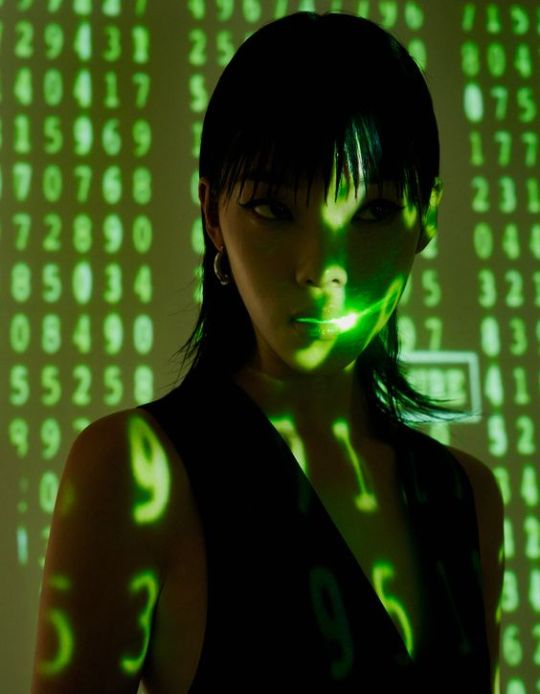
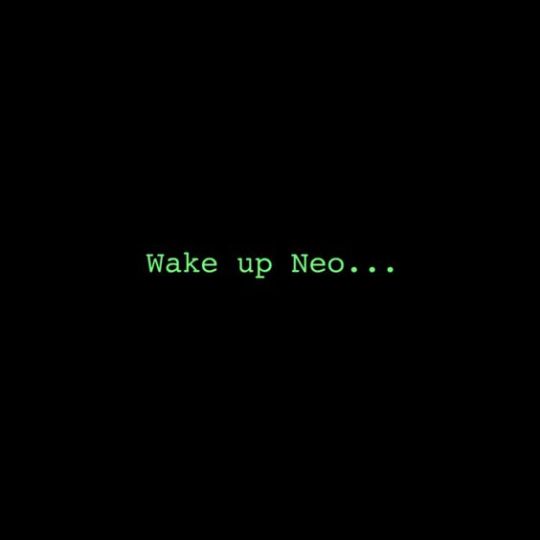
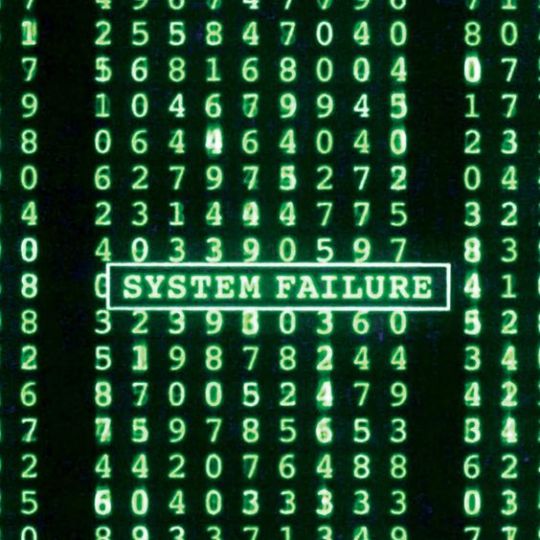
I'll give you a dose But it will never come close To the rage built up inside of me Fist in the air, in the land of hypocrisy
✶November 19, 2024 to January 19, 2044✶
Aquarius/Uranus rules: rebellion, innovation, thinking outside the box, youth, young adults, community, contribution to the community, groups, breaking conventions, dreams, ideas, surprises, accomplishments, social networks, social causes, social problems, dissatisfaction, uniqueness, agitation, fighting for ideals, fighting for ideas, new, future, future plans, technology, artificial intelligence, online groups, internet, unpredictability, rebellion, innovation, revolt, radicalism, chaos, revolution, turbulence, dissatisfaction, future, astrology, astronomy, gender equity, outer space, UFOs, programming, camaraderie, visionary, questioning, recycling, social responsibility.
Maybe we will feel like a new chapter is beginning because it is, however I would like to say that it is not yet the definitive end of an Era, that will only happen when Pluto enters Pisces and then begins its cycle again with Aries (2068–2098). Only then will we have the beginning of a new Era for humanity. That’s why it’s important for us to pay close attention to how we handle the pending social issues of this Era, such as: global warming, water resources, non-renewable energy sources (oil), gender inequality, humanitarian crises, hyperconnection, artificial intelligence, fake news, deep fakes.
I believe with all my being, with all my intuition, that if we do not take care of our planet now, when we are about to feel the force of Pluto in Aquarius acting on the collective (Earth), future generations—my children, your children, our grandchildren—will suffer greatly from the scenario that Pluto in Taurus (2097–2129) will bring. This generation will certainly pay for all the irreversible damage we have caused to the Earth. This is my intuition and my premonition, and I believe in it with my life. We must take care of this planet while there is still time.
Aquarius is also the opposite (opposition) of Leo, so leonine figures, as well as leonine themes, will go through certain challenges—this is a time of change.
When Pluto was last in Aquarius (1777–1798)
Lenormand was alive;
Yes, the creator of the Lenormand tarot was alive when Pluto was last in Aquarius, with the gift of vision running through her veins. Pluto in Aquarius guided this incredible seer through the paths of divination. Moreover, Marie Anne was part of the French Revolution and the Napoleonic Era.
French Revolution;
Declaration of the Rights of Woman and the Female Citizen by Olympe de Gouges;
Creation of the guillotine;
The “fall” of the monarchy;
The “fall” of absolutism;
Creation of the United States of America as an independent country;
The Enlightenment as the “predominant form” of thought.



Predictions
Return of Cicada 3301
This is a more personal prediction. I feel that with Uranus entering Gemini and Pluto in Aquarius, we will see a boom in all matters related to the internet. Pluto rules sects and secret groups, which is exactly what Cicada 3301 is.
More violent protests
Protests will become more violent due to Pluto’s influence, which acts as an “amplifier” (similar to Jupiter), but Pluto intensifies extreme emotions. Therefore, if the collective is very dissatisfied, this dissatisfaction will be tripled, and as a result, the protests will become more intense.
Advancement or colonization of Mars
Elon (Mars in Aquarius in the 8th house) and his team will certainly make great progress when it comes to advancing the colonization of Mars, as outer space is ruled by Uranus, the ruler of Aquarius. Thus, I believe that we, as humanity, will move forward toward space-related achievements.
Changes regarding misogyny in India (Parts of Asia)
There is still a dramatic scenario in 2024 occurring in parts of India and East Asia, where baby girls are abandoned or killed simply for being girls. Korean women still face a great deal of gender disparity in the workplace.
Behavioral shift in South Korea
South Korea still has a social landscape that does not favor gender equality.
New social network emerging
Yes, a new social network (or more) is on the horizon, as Uranus in Gemini (Air) and Pluto in Aquarius (Air) have joined forces to bring many innovations.
Social network ceasing to exist
Pluto speaks about death, and in this case, since it rules the internet, apps, and social networks, a certain social network has a high probability of ceasing to exist.
Change in beauty standards
Pluto in Aquarius will make a direct opposition to Leo, which, like Libra, dictates beauty standards and trends. The Aquarius-Leo axis deals with fashion, trends, individual tastes, and collective style.
Growth of astrology
Aquarius literally rules astrology, predictions, and our starry sky full of planets. With Pluto in Aquarius, the market is likely to see a boom in books, courses, and debates about astrology. Its importance will grow significantly.
Growth in the quality of electronic music
DJs, in particular, will be producing music and melodies that will “touch” the audience on a deeper level. As a result, we will have higher-quality music and new electronic hits emerging.
Hollywood will undergo a drastic transformation
Hollywood is literally one of the biggest symbols of Leo (with a strong influence from Neptune, as Neptune rules cinema and cinematic art). With Pluto in Aquarius making a direct opposition to this sign, we will see major transformations in aspects I can’t yet predict concerning Hollywood and its actors and actresses.
Aquarian figures gaining power and fame
Whether they have personal planets in Aquarius or simply embody this archetype.
Gigantic growth of AI
We will end Pluto in Aquarius with so many innovations and machines compared to what we have now. The question arises: could AI ever gain self-awareness? (...who knows?)
The masses will be more dissatisfied/questioning
We will be unconsciously reevaluating the rules imposed by society. As a result, feelings of dissatisfaction may arise at various times, leading to rebellion, strikes, and protests.
Greater contact with Space
Aquarius rules the starry sky, space, and everything strange to Earth. With Pluto in Aquarius, we will be more inclined to explore space, and we may even finally receive confirmations regarding extraterrestrial life.
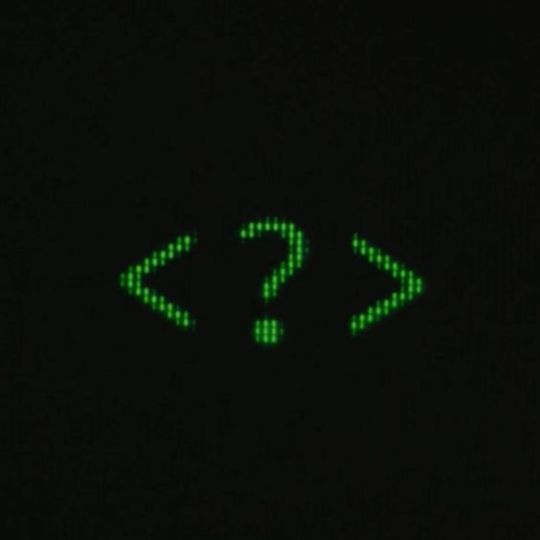

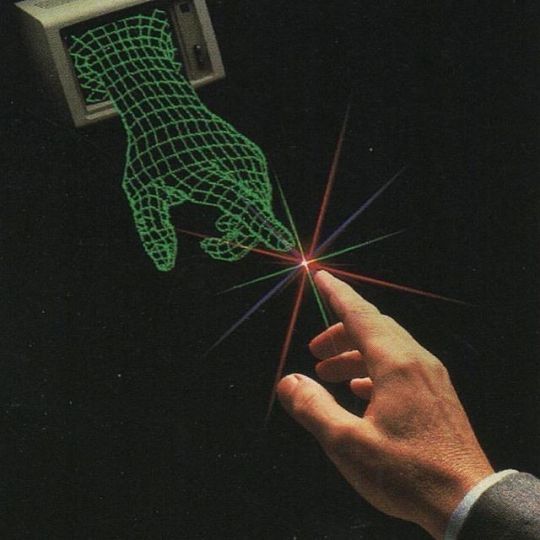
Places most affected:
Argentina – Moon in Aquarius 27°03’
São Paulo – Sun in Aquarius 14°51’
China – Ascendant in Aquarius 5°56’
United States – Moon in Aquarius 26°58’
Brazil – Ascendant in Aquarius 28°10’
Cuba – Ascendant in Aquarius 17°30’
India – Midheaven in Aquarius 14°49’
South Korea – Sun in Leo 21°40’ (opposition to Pluto in Aquarius)
Los Angeles – Midheaven in Leo 1°26’ (opposition to Pluto in Aquarius)
Tokyo – Moon in Leo 6°06’ (opposition to Pluto in Aquarius)
India – Sun in Leo 21°07’ (opposition to Pluto in Aquarius)
Mexico City – Sun in Leo 3°11’ (opposition to Pluto in Aquarius)
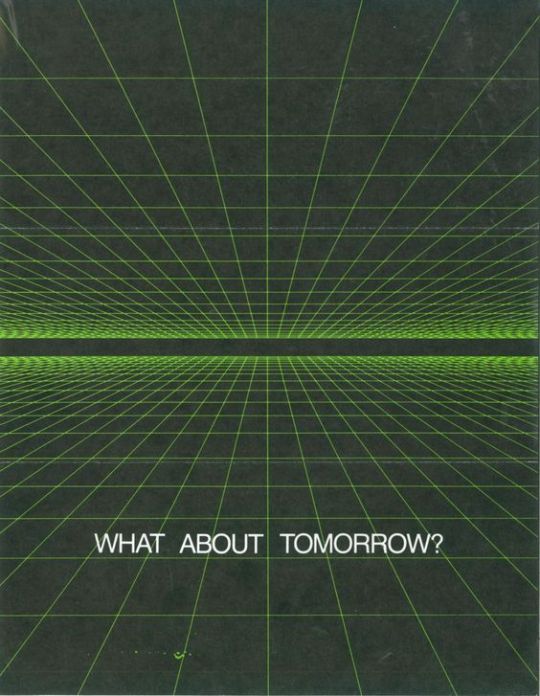


To conclude, I want to make it very clear that I feel a significant event of large proportions will occur when Pluto in Aquarius, at its final degrees, opposes Uranus in Leo, starting around 2038 or 2039. This movement will greatly impact society.
“Ideas are bulletproof!”
— V for Vendetta


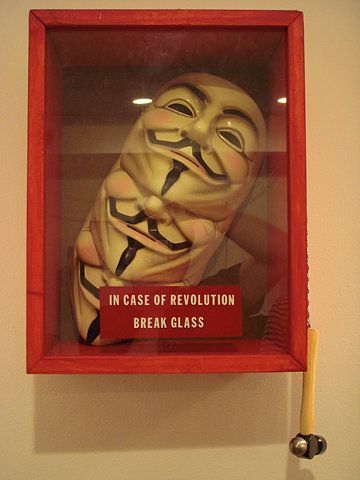
#astro community#astro notes#astrology notes#astro observations#astrology#astrology observations#aries#astroblr#leo#taurus#astrology signs#12th house#astrology readings#astro placements#witchcraft#witchblr#witches#witchcore#witchy vibes#pluto#saturn#the plutonians#asteroids#jupiter#mars#uranus#lenormand#tarot reading#tarot cards#tarotblr
347 notes
·
View notes
Text
The Romanticism of One Piece I: Definition
Part II Full essay posted on AO3 here
“Romanticism is the star which weeps” —Alfred de Musset
One Piece is a Romance. It’s the title of the opening chapter as well as the first volume, and was liked enough by Oda that he recycled it for the first chapter and volume after the time skip. Sprinkled throughout the story Luffy and others will declare certain moments to be romantic. But what does that actually mean?
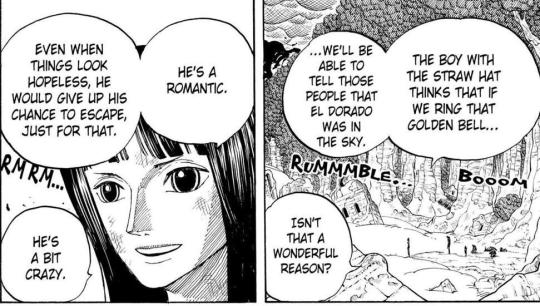
If you go to website for Mirriam-Webster and scroll down to the fourth definition, you’ll read that romance is “a: marked by the imaginative or emotional appeal of what is heroic, adventurous, remote, mysterious, or idealized
b: often capitalized : of, relating to, or having the characteristics of romanticism”
It’s this second aspect of romance that I want to focus on today, because while One Piece is imaginative, and emotional, and adventurous, the roots of the manga dig much deeper than these superficial traits and tap into the much bigger movement that at one point dominated the Western World.
As with many things, Romanticism is a concept that at its face seems quite simple, but the more you try to pin down specifics the more it squirms into something amorphous and difficult to define. In his lectures on Romanticism, Isaiah Berlin described it as, “the greatest single shift in consciousness of the West” before spending an entire hour of his introductory lecture trying to distill it down to its purest essence. In the Romantic movement we find our modern ideas of imagination, childhood, and sentimentality. Its influence dominated everything from politics, philosophy, poetry, literature, art, music and architecture. From the Romantics was born the Nationalism of the late 18th and early 19th centuries, which would lead to tragic results in the 20th. It spanned Europe and America, the Western world alight with hope after the French Revolution only to watch with horror as it was followed by the Reign of Terror, Napoleon, and the wars he brought to the rest of the continent.
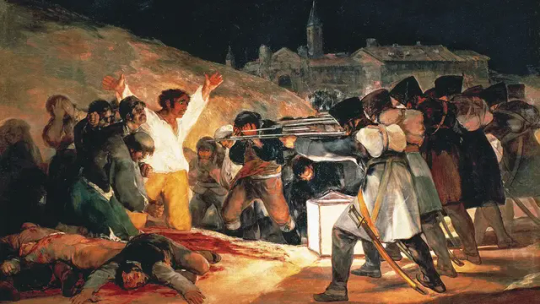
Pinpointing dates is difficult, but for simplicity’s sake it’s easiest to put it as lasting from approximately the mid 1700s through the mid to late 1800s. As Romanticism was a pan-European movement, it didn’t hit every place at the same time. It swept from France through Europe and eventually America at its own pace, blooming and dying independently of one another, with various precursor movements such as the Storm and Stress era in Germany, as well as holdovers lasting well after the golden age ended, the last embers clinging on until the First World War. Romanticism picked up the local flavor of wherever it went, the Romantic ideals of France related but not identical to the Romantic ideals of Germany, just as the Romanticism of William Wordsworth wasn’t the same as the Romanticism of Lord Byron.
When attempting to define Romanticism, it is perhaps easiest to see it in what it was trying to push back against. As with every movement, the Romantics were in conversation with the past, in their case the Enlightenment thinkers of the 17th and early 18th centuries. The Enlightenment as a movement is just as difficult to pin down as the Romantics, but on the whole it said that there was one, specific way men should live their lives, that there was a formula for happiness and improvement of the human condition using reason, science, and an appropriate methodology. While the various Enlightenment figures all disagreed what that methodology was, for the most part they all agreed that it existed. It favored cold, hard logic, a celebration of science and of learning, and was hopeful for a future where humanity could better itself through its own effort by understanding the universe in which it lived.
The Romantics looked at all of this, and said…no.
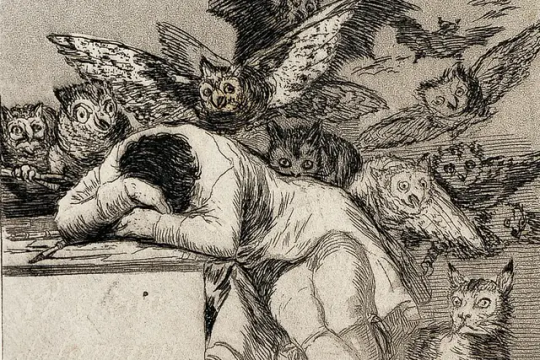
There are other factors to consider when discussing Romanticism, such as the increase in urbanization following the Industrial Revolution and the political instability brought on by corrupt, crumbling monarchies and the revolutions they spurned, but in my mind this defiant no is the beating heart of Romanticism. It’s a philosophy that emphasizes the self over all, prioritizing feeling over reason and experience over logic. In fact, to the Romantic, there was no knowledge without feeling.
Institutions such as the church lost some of their power even as the Romantics became more obsessed with spirituality and the occult. The idealized, pastoral past of their beloved romantic ballads was yearned for even as revolts broke out against the monarchies that ruled in those stories of old. There was veneration of the child and the so-called Noble Savage, who were free from the corrupting forces of society and civilization. Freedom was the rallying cry, with abolition, women’s, and animal rights movements all stirring within this time period, but there was no greater freedom than the freedom of self. To do what you wanted when you wanted to do it.
There was a preoccupation with individual genius, and there was little that could bolster one’s career more than living fast and dying young. The Romantic world was one where death was frightfully common, with the increased density of the rapidly growing cities leading to frequent breakouts of disease even as populations boomed. Nearly half of children didn’t live to see their fifth birthday, and for those who did survive to adulthood, the political instability of the time made the future seem uncertain. Better then, to reject the all-consuming industry of the modern age and the cities that seemed to destroy more than they built in favor of spending time alone in the glories of nature and their own imagination, living as they pleased, beholden to no one but their own conscience.
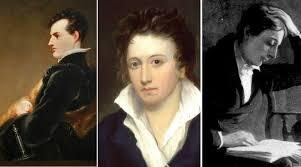
You’ll notice in the examples that I quote that most are white men and most of these men were well-educated. It’s a simple fact that the opportunities they were afforded were different than women and people of color, and their voices were amplified as a result. While there’s been increasing scholarship in recent years to diversify the canon, and there’s good fruit to be found in that regard, it must be acknowledged that the worldview shaped by the most famous Romantics is limited by this singular perspective.
That being said, there can be a more universal application to Romanticism, and One Piece proves that. The defiant no to the binding chains of society and the enthusiastic yes of personal freedom is something that we all feel at one point or another, and it’s what makes up the core of One Piece. Romanticism is a cosmic wanderlust, the ability to poeticize everything both great and small, the neverending search for, well…that depends on the person. But the important part is that they do search and they do dream. And it’s that search that I want to explore in more detail as I dig into specific aspects of Romanticism, and how One Piece applies.
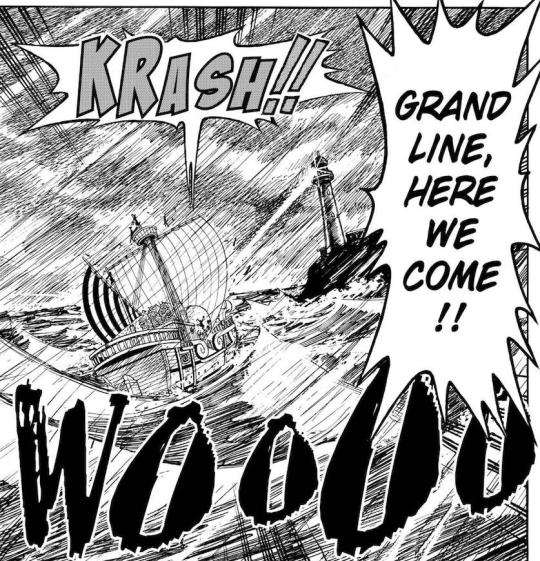
285 notes
·
View notes
Text
When I do my community service, teaching children about how to use tools, they invariably ask me: why so many kinds of screwdriver? Then I have to tell them about why there are so many different kinds of screwdriver. Perhaps you also don't know, because we are adrift in a post-doing-shit era, where we can't find anyone to fix our toilets. I've been pooping at the gas station for weeks.
Nobody really knows when the first screwdriver was invented, but we know the first fossils of early screws date back to the Mesozoic era. Back then, we only had flathead screws, because those were the easiest to turn with whatever was lying around. Coins, dinosaurs, early stratigraphic formations of the Earth itself. These screws were massive, because they hadn't invented the concept of "small" yet.
Hundreds of thousands of years later, the so-called Antipope John XXII invented the Phillips screw. You might wonder why he would name the screws not after himself, but pay attention to all those Xs in the name. Benedict Phillips just came by later and stole the idea, and covered his tracks very poorly. He was later killed by Alessia Torx (no relation) in a duel over the invention of slam poetry. Phillips had a lot going on, let's just leave it at that.
During the French Revolution is when things really started to get spicy for screws. Talented machinists were suddenly cast adrift in a world where they no longer had to take orders from any royalty, and the concept of "authority" now rested inside the beating heart of the noble worker. So they went fuckin' nuts, making whatever fasteners they could think of. Elias Triple-Square, of Vendée, made some particularly poor choices, and then published his findings in a German journal, where Holt Volkswagen made even worse decisions.
All this is to say, all the different screws are because every engineer thinks they're smarter than all the other ones. Even today, as we speak, some asshole is probably inventing a new kind of fastener that will obsolete your so-called "universal" screwdriver set. Maybe one day, you too can be one of those assholes, and leave your mark upon history forevermore.
217 notes
·
View notes
Text
Les Mis Hidden Name Meanings: “Fantine” (posting here because it got popular on TikTok)
Every character in Les Mis has a name with a deeper symbolic meaning— here’s a video I made for the official @barricadescon TikTok about the meaning behind “Fantine!”
Transcript and Digressions I left out of the video, under the cut:
Every charcater’s name in Les Mis is either a pun, a reference to a historical/mythological figure, or had some deep symbolic meaning — and sometimes it’s all of them at on.
The name “Fantine” comes from the french word “enfantine” or “childike, infant-like.” Her name basically means “Baby.” And obviously this speaks to her innocence and niavetee. But also “baby” is kind of,.,, well it sounds more like an informal term of endearment than an actual legal name?
And that’s because– Plot twist– Fantine isn’t her legal name! What is her legal name? She doesn’t have one.
And the reason she doesn’t have one is directly tied to political turmoil of the era she was born into.
Fantine grew up an orphan living on the streets, without a family without parents. Hugo tells us the origin of her name:
“she bore on her brow the sign of the anonymous and the unknown. (...)She was called Fantine. Why Fantine? She had never borne any other name. At the epoch of her birth the Directory still existed. She had no family name; she had no family; no baptismal name; the Church no longer existed. She bore the name which pleased the first random passer-by, who had encountered her, when a very small child, running bare-legged in the street. She received the name as she received the water from the clouds upon her brow when it rained.”
This moment is adapted beautifully in the Manga adaptation by Takahiro Arai, which I recommend to anyone who loves Les mis, manga, or any combination of those things.
But now let’s talk about the Directory.
To wildly oversimplifly a lot of complex history: Before the French Revolution, the Catholic Church’s records of baptismal ceremonies were often used as a registry of people’s legal names. During the French Revolution, the Revolutionary government– including the Directory– put in place a series of policies we now call “dechristianization,” where they attempted to dismantle the power of Catholic church.
Fantine was born during the age of these dechristianization policies. So she was never baptised, her baptismal name was never recorded, so she has no recorded legal or family name. She’s slipped through the cracks of the legal system, and ended up completely anonymous.
It sets Fantine up as this anonymous child of the Revolution– a stand in for everyone who was left behind when the Revolution was left behind, and kings were restored to the throne.
Fantine’s namelessness is meant to show atomized . How she has NO support system. She has nothing to connect her to other people, nothing to connect her to a support system.
Finally, the way Fantine tends to “slip through the cracks” is something that follows her throughout her life. When she’s fired from her job at a factory, Maroy Madeleine never learns of it– Fantine has this tendency to overlooked and forgotten. She is born anonymous and she dies anonymous. At the end of the story, she is buried in an unmarked grave, with not even the name “Fantine” on her headstone.
It ties into novel’s questions about which people we consider worth remembering, whose lives are worth being records.
And obviously Fantine is not the only character in Les Mis whose name has a deeper symbolic meaning. If you have any other Les Mis character names you’d like to explain, leave their name in the comments below.
Thank you for watching!
From the description of the original tiktok, here are some things that were left out of the video for time:
How this all relates to Cosette’s name(s)
Fantine’s nickname “The Blonde,” and how this relates to the way she’s dehumanized by Tholomyes
How the 2018 Bbc series fundamentally misunderstands Fantine’s character, and how one sign of this is that they give her a full legal first and last name
How Fantine’s name shows up/is revealed is significant parts of the story (like when Valjean reveals her signature on a letter to Thenardier, allowing him to take Cosette away)
How Fantine’s inability to write ties into the way it’s difficult for her to record her own story
How some of Valjean’s last words are revealing Fantine’s name to Cosette
Thanks again for reading!
476 notes
·
View notes